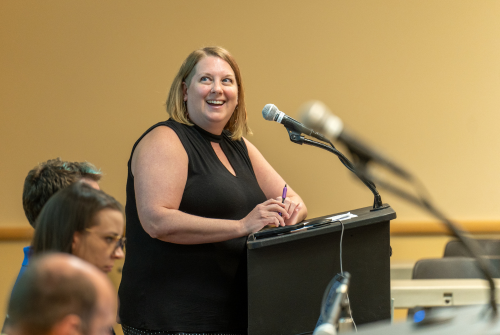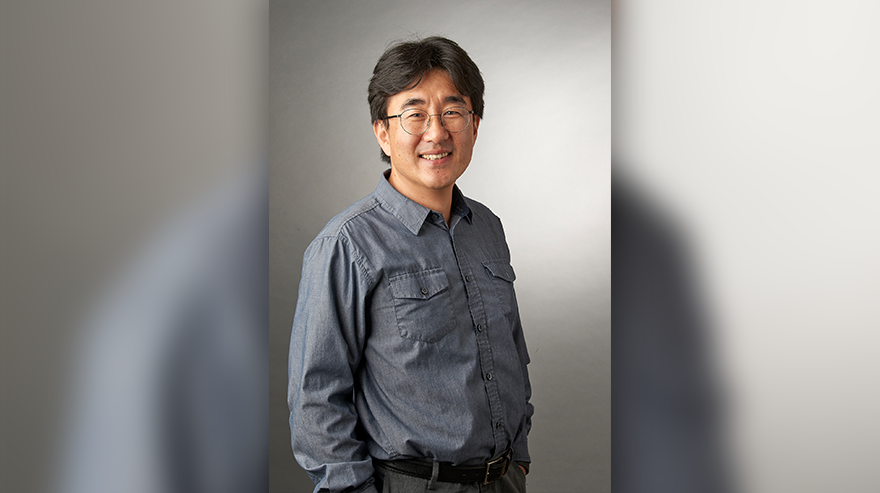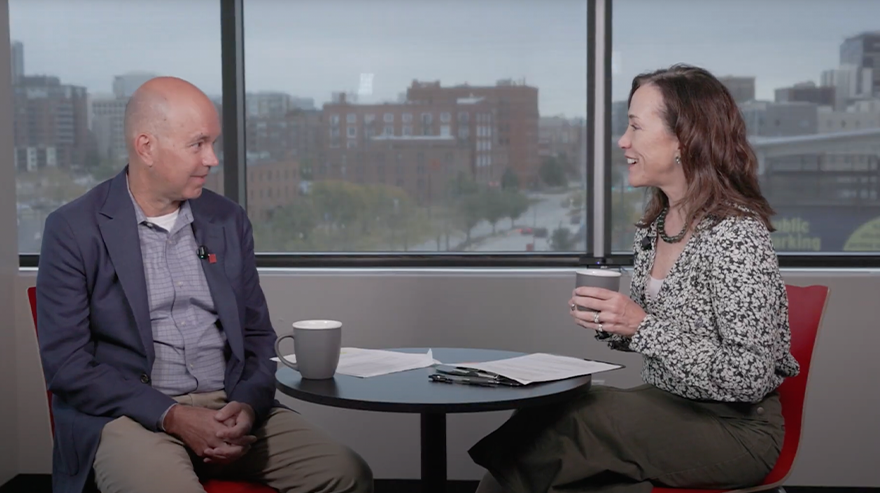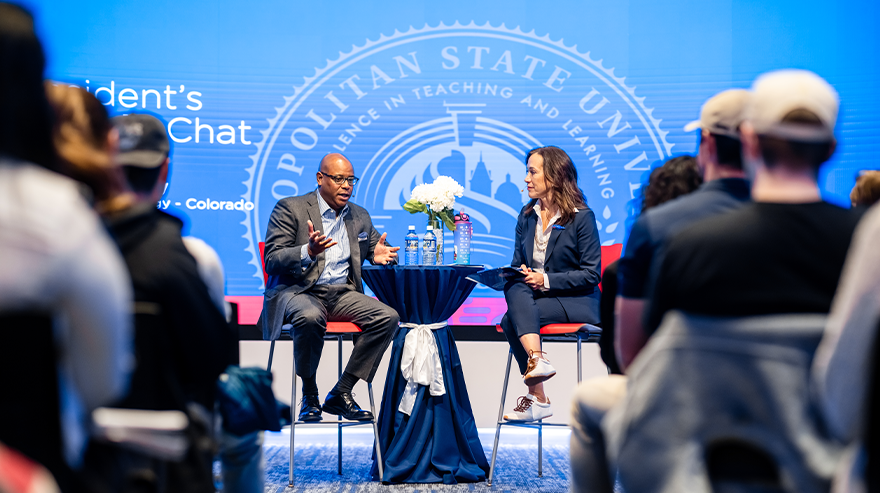After being reelected as Metropolitan State University of Denver Faculty Senate president, Liz Goodnick, Ph.D., heads into her third term ready to roll.
Goodnick has been with the University for more than a decade and has worked with the Faculty Senate through the entirety of her Roadrunner career. As a professor of Philosophy, she focuses her research on the history of European philosophy from roughly 1600 to 1800 (the early modern period), with special interest in David Hume and women philosophers, especially Margaret Cavendish and Émilie du Châtelet.
Before being elected president, she served on the Academic Policy Committee and General Studies Curriculum Review Committee, as the chair of the Diversity Committee and as the Faculty Senate vice president.
As a new school year begins, the Early Bird interviewed Goodnick to discuss Faculty Senate goals, what the body is working on, how to get involved and how she spends her time outside of work.
EB: What are you most proud of during your tenure as president?
Goodnick: Over the last two years, we’ve made great progress on some DEI-related efforts. First, we’ve successfully overhauled the Multicultural graduation requirement to the Ethnic Studies and Social Justice requirement. Last year, the Ethnic Studies and Social Justice curriculum committee awarded the designation to several new and refreshed courses; it will continue that work this year. I’m excited that our students have the opportunity to start taking these new courses this fall (including a class that I’m teaching in the Philosophy Department). We also approved the Faculty Diversity Task Force’s recommended changes to the Faculty Employment Handbook, updating the language defining faculty work — teaching, service and scholarship — to ensure that faculty members are rewarded for things like inclusive pedagogy, DEI-focused service and scholarship and more. This language was passed by the entire Handbook Committee, and (Janine Davidson, Ph.D.) recommended the changes be included in the 2024-25 FEH. This year, I plan to continue working with the task force to help departments revise their guidelines in light of these changes.
EB: How have your views on leadership changed throughout your tenure as president?
Goodnick: I’ve always seen my main role as an advocate for the faculty and my position as representing the voice of the faculty, and this hasn’t changed. I have discovered better ways to learn what the concerns and views of the faculty are, in particular by increasing the communication channels between departments, their senators and their caucus leaders. This communication-tree approach has been a significant improvement in getting a better understanding of what’s happening with the faculty. I’ve also learned that advocating for the faculty is more effective when I work in conjunction with the rest of the faculty leadership team (the president of the Council of Chairs, the faculty trustee and the Metro State Faculty Federation president) and the leaders in Faculty Affairs. This year, I hope to continue honing my leadership skills and learn from the amazing leaders that I get to work with regularly.
EB: What are the Senate’s priorities for the year?
Goodnick: The Executive Committee officially determined the Senate’s priorities for the year at our first meeting in August. This year, our first two priorities are:
1. Completing the regular work of the Faculty Senate well and on time. This consists of reviewing curriculum and academic policy as well as faculty retention and promotion portfolios and faculty sabbatical applications, while also making sure that faculty is represented and has a voice on various Universitywide committees, job searches, etc. This work requires filling all 12 of our standing committees.
2. Working with University Planning and Budget Advisory Committee and the compensation/total-rewards subcommittee of the UPBAC to advocate for better compensation and additional cost-effective or cost-neutral benefits to enhance morale and prevent burnout. We will also advocate for more transparency around faculty salaries.
Our other goals center on faculty workload; the Academic Strategic Plan; budget; Faculty Excellence Awards; implementing diversity, equity and inclusion changes in the Faculty Employment Handbook; and advocating for shared governance.
EB: How do you want to see faculty/staff members who are not senators to be involved in the Senate?
Goodnick: All of our meetings are public and can be attended by anyone (faculty members, staff members, students, community members) either in person or virtually. We meet every other Wednesday from 3:20-4:50 p.m., and more information such as meeting dates, locations and agendas can be found on our website. I would encourage anyone who is interested to attend our meetings. Additionally, faculty members should discuss Senate business with their department senators and make sure that their senators are representing their departments with their votes.








